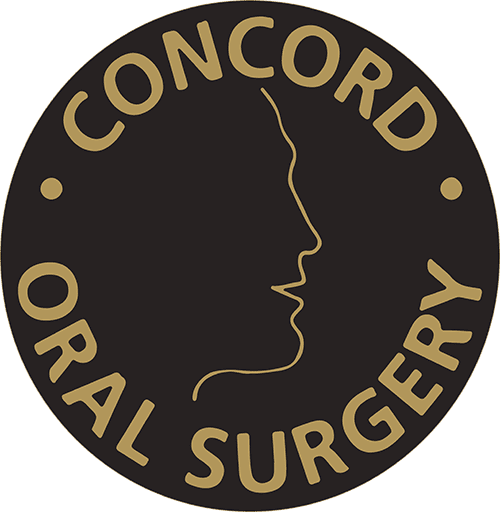Reviewed By Dr. Robert Barron, DMD
Reading Time: 4 minutes
Major restorative dental care includes advanced procedures that rebuild or replace severely damaged or missing teeth.
If you need more than a simple filling or cleaning, you may fall into the category of needing major dental work.
This blog will help you understand what treatments count as major restorative dental care, how it differs from minor care, and how oral surgery plays a role in complex cases.
At Concord Oral Surgery in Vaughan, Ontario, we specialize in surgical support for major restorative cases, including dental implants, bone grafting, and pre-prosthetic procedures.
Table of Contents
Key Takeaway
Major restorative dental care includes surgical and multi-step treatments to restore severely damaged or missing teeth.
Services That Fall Under Major Restorative Dental Care
Major restorative care restores both the function and appearance of teeth after serious damage, disease, or tooth loss.
These restorative procedures often involve surgical intervention or multi-step dental treatments. Examples include:
- Dental implants: Permanent replacement for missing teeth that requires surgical placement of an artificial tooth root into the jawbone.
- Full mouth dental implants: A complete restoration solution for patients missing most or all of their natural teeth.
- Bone grafting: Rebuilds lost jaw bone to prepare the area for future replacement teeth.
- Pre-prosthetic surgery: Improves oral structures to support future dental restorations like traditional dentures or partial dentures.
- Tooth extractions with surgical planning: Especially in cases involving impacted or broken teeth, decayed tooth remnants, or extensive damage.
These restorative services are typically required when tooth loss, trauma, or long-term oral health issues compromise both function and aesthetics.
How It Differs From Minor Restorative Dental Care
Minor restorative care focuses on small-scale repairs that do not require surgery or complex planning.
These include:
- Dental fillings using composite resin
- Bonding for chipped or cracked teeth
- Inlays or onlays
- Simple dental crown placement or bridges that do not require oral surgery
The main differences between minor and major restorative care are:
- Extent of damage: Major care treats broken teeth, missing teeth, or a severely damaged tooth structure. Minor care addresses small cavities or early progression of tooth decay.
- Time and cost: Major services involve multiple visits and a wide range of dental procedures. Minor treatments like basic fillings are often completed in one visit.
- Need for surgery: Major restorations often require surgical dental procedures. Minor ones do not.
- Type of specialist involved: Major cases may need collaboration between your general dentist and an oral surgeon.
Why Oral Surgery May Be Needed for Major Restorations
Some restorative treatments cannot succeed without surgical support.
For example:
- Implant placement must be done surgically to ensure the implant integrates with your jaw bone.
- Bone grafting may be necessary after tooth loss or when gum disease leads to bone resorption.
- Alveoloplasty or ridge augmentation ensures that your future dentures or implant-supported dentures fit comfortably.
Our team at Concord Oral Surgery uses advanced CBCT imaging and digital planning tools to ensure every step supports the function and appearance of teeth.
Our Approach to Major Restorative Cases
At Concord Oral Surgery, we believe in a patient-first approach to restorative dental care.
Here is what you can expect:
- Consultation: We discuss your goals, assess tooth damage or missing teeth, and take 3D scans.
- Treatment planning: We determine what type of treatment will benefit you the most and consider your overall health and budget.
- Coordination with your dentist: Your dentist completes the visible portion like crowns or false teeth, while we support structural needs.
- Ongoing support: Dr. Barron personally checks on recovery time and healing to ensure proper care.
We work with a wide range of dental insurance plans, though we bill patients directly. You can ask us how your dental coverage applies to restorative dentistry.
Schedule a Consultation With Our Oral Surgeon in Vaughan, ON
We are always accepting new patients, no referral required. However, if you would like your primary physician or dentist to refer you for insurance purposes, have them complete our referral form.
To book an appointment at our oral surgery office in Vaughan, ON, call (905) 669-2616 or complete the appointment request form. We are located at 3300 Highway 7 West, Suite 805 Vaughan, ON.
FAQs About Major Restorative Dental Care
Do I need a referral for dental implants?
No, you can book a consultation directly with us. We will assess your needs and create a full plan for your implant procedure.
Is bone grafting always needed before implants?
Not always. If you have enough bone density and healthy bone, we may proceed directly. But if bone loss is present, grafting ensures a stable foundation.
What is the healing time after major restorative procedures?
Healing time depends on the procedure. Dental implants typically take 8–10 weeks to heal and integrate with the bone.
How is major care different from cosmetic dentistry?
Cosmetic procedures focus on aesthetics. Cosmetic procedures include dental veneers and dental crowns to improve the look of the teeth. Restorative dentistry repairs oral health, function, and provides foundational support for a healthy, functional smile.

